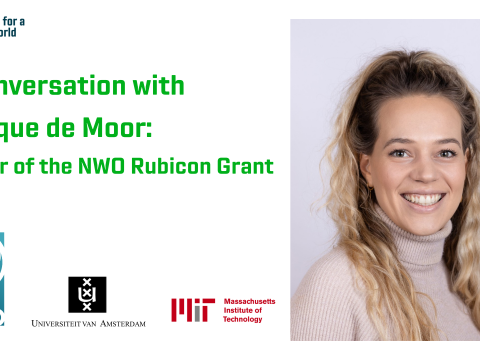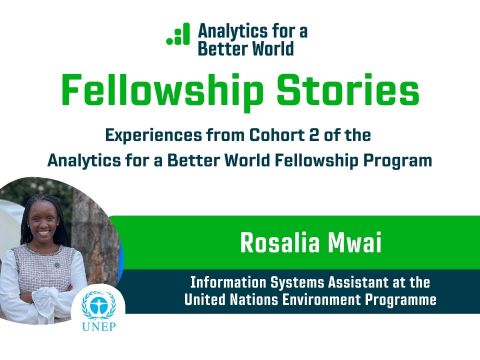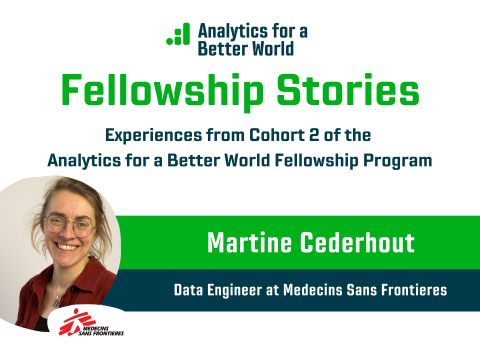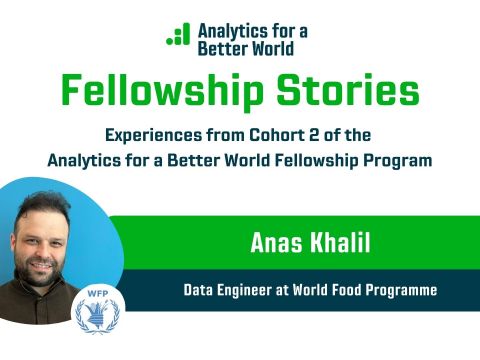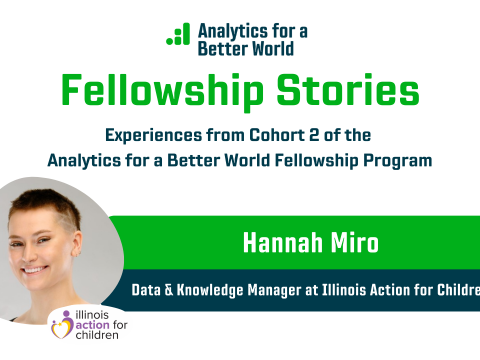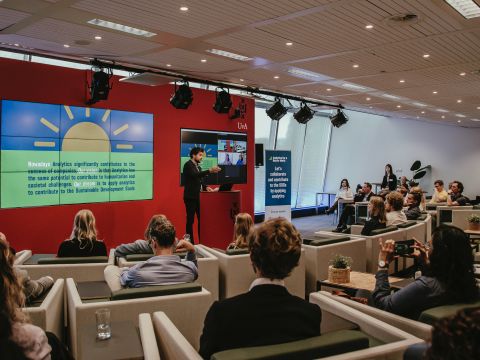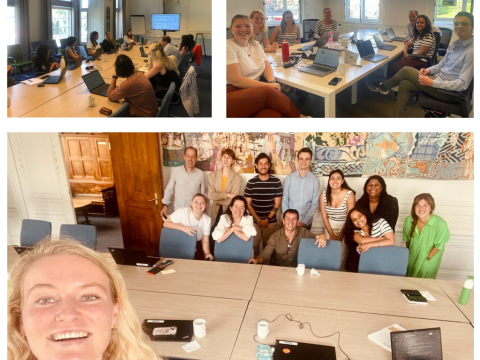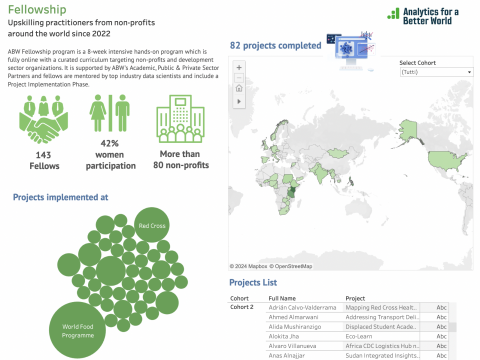Analytics for a Better World
See profileDanique de Moor
See profileA Conversation with Danique de Moor, Winner of the NWO Rubicon Grant on an ABW Topic
Congratulations Danique!
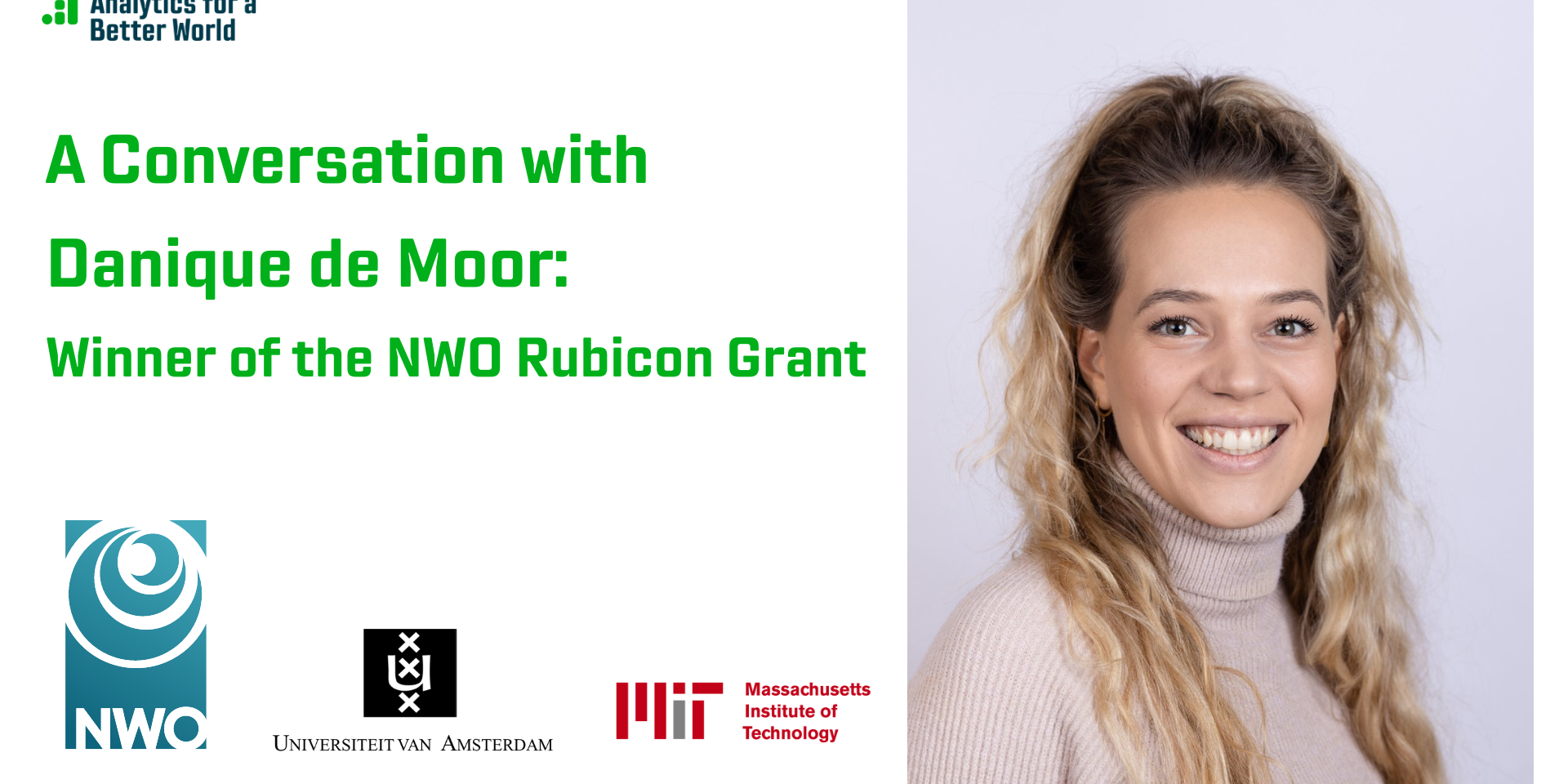
In our recent interview, Danique de Moor, a researcher specializing in optimization techniques and machine learning, told us about her journey, current projects, and aspirations for impacting society through her work. Danique, who recently completed her PhD and is now a postdoc associate at MIT, sheds light on her grant-funded research project aimed at maximizing geospatial accessibility to healthcare facilities in low and middle-income countries.
Introducing Danique de Moor
Danique’s academic journey is one marked by a passion for mathematics and a drive to apply theoretical concepts to real-world challenges. Her PhD research focused on developing optimization techniques for non-convex problems, with practical applications in optimizing food aid operations during a humanitarian emergency, notably in conflict zones like Syria.
The NWO Rubicon Grant-Funded Research
Danique was recently awarded the NWO Rubicon grant for a period of a 2 years Post Doctorate Program, taking place at the Massachusetts Institute of Technology (MIT) under the supervision of professor Dimitris Bertsimas, who is also science to impact director of Analytics for a Better World. The Rubicon programme allows scientists and academics from the Kingdom of the Netherlands who recently obtained their PhD to gain experience at a foreign knowledge institute, broadening their scope and building a career in academia.
Danique’s current research project seeks to address the critical issue of healthcare accessibility in low and middle-income countries. With nearly half of the global population unable to reach a healthcare facility within an hour’s walk, the project aims to develop mathematical optimization and machine learning techniques to tackle this challenge head-on. By strategically locating healthcare facilities and optimizing mobile healthcare services, the goal is to maximize accessibility, particularly for communities with limited motorized transportation options.
43% of the world’s population cannot reach a healthcare facility within one hour of walking. In areas where motorized transport is limited, which is the case especially in low- and middle-income countries, a question to be answered is: given a limited number of facilities, where should we locate those facilities to maximise their accessibility?
– Danique de Moor
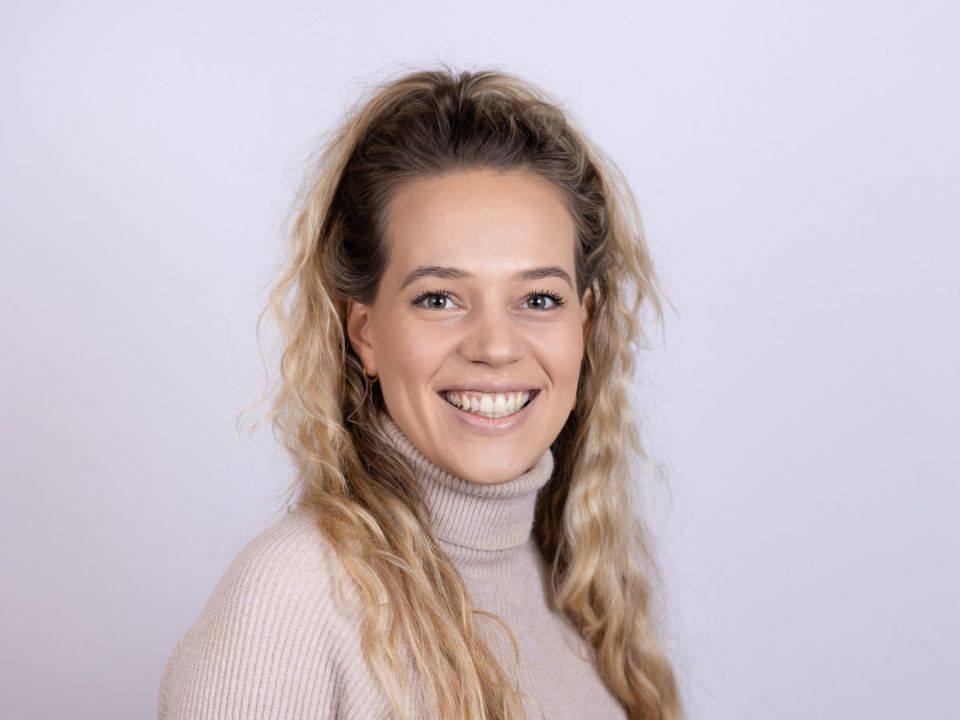
While Danique’s research project primarily focuses on healthcare accessibility, its implications extend beyond this domain, such as logistics, manufacturing planning, finance, and climate change. Danique’s research involves collaboration with organizations like the World Health Organization, the World Bank, Amref, and the Red Cross. This ensures that the developed methods are tested in real-world scenarios and applied to test cases in countries such as Timor-Leste, Vietnam, and Nepal. The scalability of these methods also ensures their relevance across different sectors and geographical contexts.
Personal Motivations and Goals
For Danique, the drive to make a positive impact on society serves as a guiding principle in her research endeavours. “I really enjoy to be able to do the research that I like, but also apply it in practice, such that I can have an impact on the society”, she shared. Her interest in machine learning stems from its potential to address real-world challenges and enhance the efficacy of optimization techniques. By expanding her expertise in this field, she aims to become a more versatile and impactful researcher, contributing to solutions that benefit society at large.
Looking ahead, Danique envisions her research making significant strides in optimizing healthcare access and other societal challenges. Also, the new methods will be implemented in the PISA Toolkit, created by Analytics for a Better World. Collaborations with renowned institutions like MIT, where she is currently based, further enrich her research journey, providing access to expertise and resources essential for project success.
Conclusion
Danique de Moor’s research exemplifies the intersection of academic rigor and real-world relevance. Through her work, she not only advances the frontiers of optimization and machine learning but also brings tangible benefits to communities in need. With a commitment to collaboration and societal impact, Danique’s research paves the way for a future where access to essential services, like healthcare, is equitable and efficient.
